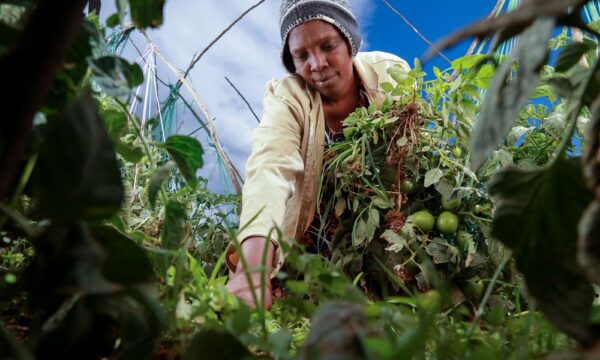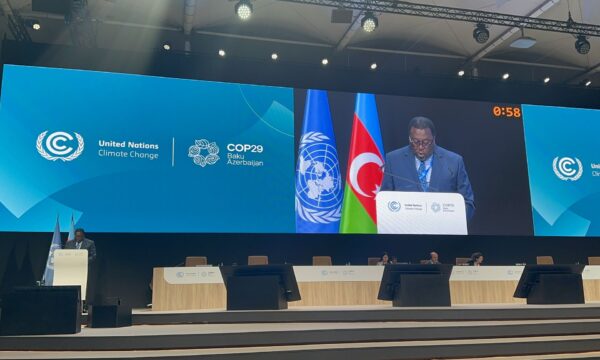
Climate change poses a threat to the livelihoods of smallholder farmers, exacerbating existing risks like extreme weather and the migration of crop pests and diseases that threaten food security. Already, the climate crisis is accelerating biodiversity loss and the spread of invasive species, which cost Africa’s agricultural sector billions annually. Taken together, this can jeopardize development gains and plunge communities deeper into poverty.
A global approach based on global agreements is critical. SDG 13 – Climate Action – emphasizes resilience-building, essential for smallholder farmers, especially for women farmers in rural communities. CABI’s programmes and projects equip them with essential skills and knowledge to adapt to climate impacts, focusing on pest and disease management and landscape resilience.
On Earth Day, we’re highlighting a selection of CABI’s blogs on agriculture and climate change, published over the course of the past year, that consider three important areas: climate resilience, global climate agreements, and gender and climate change.
How can we help smallholders build resilience to climate change?

When it comes to climate change, the agricultural sector faces a double-edged dilemma. It is one of the world’s biggest contributors to greenhouse gas emissions, but it is also one of the most vulnerable sectors to the impacts of climate change. Given the fundamental role that agriculture plays in our lives…
The climate crisis disproportionately affects women and girls. We need to act on climate change and gender!
The climate crisis does not affect everyone equally. Women and girls are more likely to experience the greatest impacts of climate change. According to the UN Environment Programme, for example, 80% of people displaced by climate change are women. And in an article from 2022…
Read more>>

Reflections on COP 28: Conference brought food and farmers to the forefront of climate change negotiations

The declaration on sustainable agriculture, resilient food systems and climate action, signed during COP28, demonstrates a strong commitment from 159 countries to transforming agrifood systems and to adapting to a rapidly changing climate. It also declares an intention to tackle hunger and poverty, and conserve biodiversity…
Related News & Blogs
Strengthening the potato value chain in the Kurdistan Region of Iraq
On 30th May, we marked the International Day of Potato. In this blog, CABI’s Crop Health Advisor Anna Wood provides an update on a five-year project led by CABI to strengthen the potato value chain in the Kurdistan Region of Iraq. An ambitious five-yea…
3 June 2025




